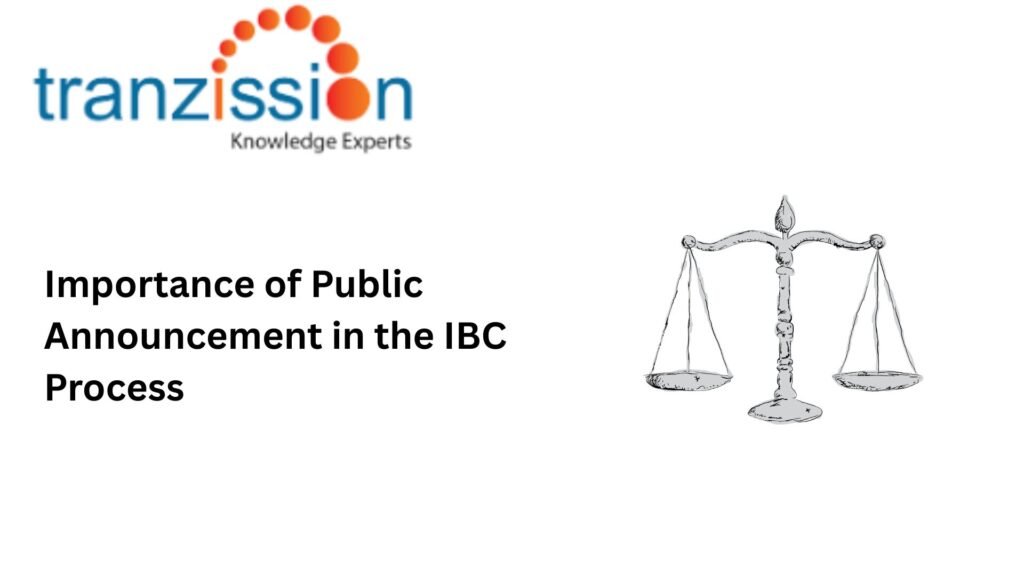Blog
When an insolvent company goes into liquidation, employees face a challenging period as the company ceases operations and ultimately stops all salary payments. During this time, understanding How Does Liquidation Affect Employees becomes crucial, as unpaid wages typically become a claim in the liquidation process. For employees, knowing their rights and exploring any available remedies […]
During the resolution process, an essential element is a public announcement in the IBC Process. Only after the Public Announcement in the IBC Process of the initiation of the corporate insolvency resolution process and the call for submission of the creditor’s claims, can the moratorium period officially begin. What is a Public Announcement in CIRP? […]
The Insolvency and Bankruptcy Code, 2016 was established to resolve the financial issues of the corporate debtor as a going concern. It is crucial to treat the corporate debtor as a viable business that can continue operating and be sold as a whole unit. But what is the need for continuing an insolvent company that […]
When a company becomes insolvent, there are several parties involved in the resolution process, not only the corporate debtor and its creditors. Understanding equitable treatment under insolvency law is essential, as it ensures a fair distribution of assets and protects the interests of all stakeholders. The Insolvency and Bankruptcy Code, 2016 (IBC) provides the framework […]
Arbitration and insolvency laws clash due to their fundamentally different approaches to resolving any legal issue. While insolvency aims to centralize debt resolution by managing all claims against an insolvent company in court, Role of Arbitration in Insolvency promotes decentralized dispute resolution through private tribunals. This creates a potential conflict when both processes are involved, […]
In the Insolvency and Bankruptcy Code, 2016 (IBC) haircuts in the resolution plan is the difference between the amount creditors claim and what they receive. It essentially signifies the amount the lender has to “cut off” from their claim due to the company’s inability to fully repay their debts. Critics argue that high haircuts can […]
Insolvency and Bankruptcy Code, 2016 incorporates personal insolvency processes for resolving the financial distress of individual debtors in a structured and time-bound resolution. The most common form of personal insolvency under IBC is bankruptcy, however this is not ideal for any individual as debtors are working towards reviving, restructuring, or rehabilitating themselves. Understanding Personal Insolvency […]
Understanding the insolvency process under the Insolvency and Bankruptcy Code, 2016, it’s crucial to grasp the difference between financial debt and operational debt. The core distinction lies in the nature of the debt, which determines the rights, roles, and responsibilities of the creditors. Financial creditors hold a significant influence, particularly in corporate insolvency resolution and […]
Link between section 230 of the Companies Act and IBC are important legislations that have a bearing on insolvency, restructuring, and other matters. Although the aims of both are different in their scope and processes, they are similar in their end goal, to restructure companies and avoid bankruptcy while balancing the interests of all stakeholders. […]
The Insolvency and Bankruptcy Code, 2016 (the IBC) and the Insolvency and Bankruptcy Board of India (Grievances and Complaints under IBC Handling Procedure) Regulations, 2017 (hereon forward known as “the IBBI Grievance and Complaint Handling Procedure Regulations, 2017”) provides for grievance redressal and enforcement framework for the service providers. Having a robust grievance redressal system […]

